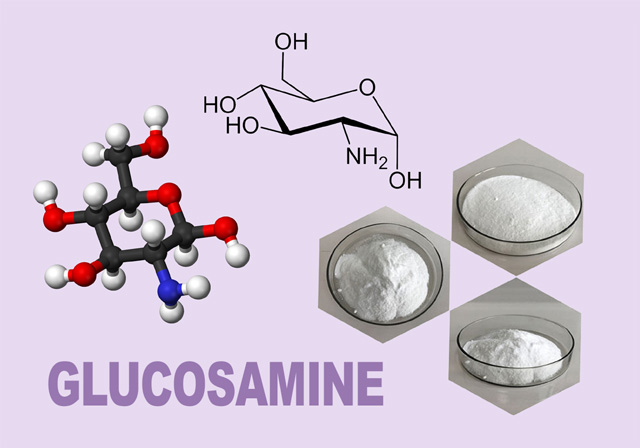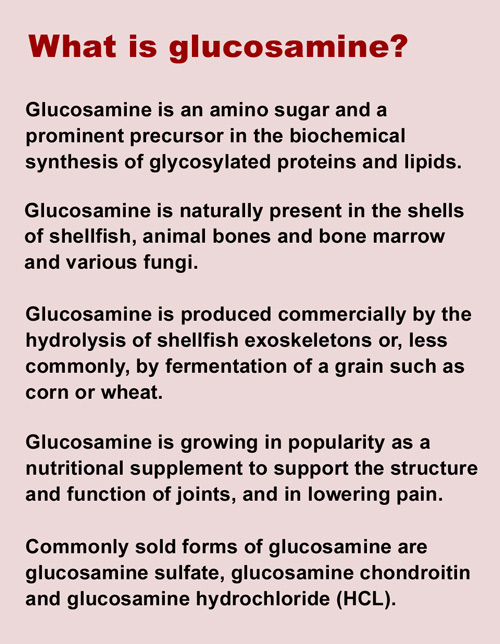Glucosamine is recognized by most for it’s joint support properties, but a new scientific trial has shown it is also beneficial for promoting intestinal function.
The improvements in gut health included healthy changes of microbiota in additio to less bloating, constipation and hard stools.
Researchers also found that glucosamine supplementation led to significant decreases in the excretion of amino acids by the participants.
This finding suggests glucosamine helps the body retain the essential amino acids needed to maintain muscle health.
The results were published in the scientific journal Nutrients in June 2021. The study was industry sponsored, but met all standards for a scientific trial: a randomized, double-blind, placebo-controlled, crossover trial.
What is glucosamine?
Glucosamine is an amino sugar compound that has consistently been shown to help improve joint health and pain. It is typically sourced from shellfish exoskeletons. Less commonly it is sourced through a fermentation process, using a grain or fungus such as Aspergillus niger.
Glucosamine is poorly absorbed by mammals. For this reason it has grown in popularity as a nutritional supplement. Using a supplement, whether in capsule or powder form, can deliver consistent quantities—and results.
Glucosamine is popular not only in the supplement retail marketplace, but is also widely used by health professionals and professional athletes.
Study details
The study was performed by researchers at several cooperating institutions: Lindenwood University, the University of California, Davis, Increnovo LLC, Jamieson Wellness Inc., and Dr. Theo’s, Inc.
The trial included six healthy men and five healthy women. Each person was randomly assigned to complete two supplementation protocols of either glucosamine hydrochloride (HCL) or placebo, each lasting three weeks.
A two-week washout period separated the protocols. Participants completed bowel habit and gastrointestinal symptoms questionnaires, and also provided stool samples from the start and end of each intervention period.
Results indicated that glucosamine supplementation was associated with “statistically significant reductions in stomach bloating, and trended towards reducing constipation and hard stools.”
Fecal analysis showed that phylogenetic diversity was significantly reduced following the glucosamine supplementation period.
Results showed that glucosamine doesn’t stimulate bifidobacteria the way classic prebiotic fibers do. Interestingly, they substantially lower Pseudomonadaceae, Peptococcaceae, and Bacillaceae proportions in the gut microbiome, unlike prebiotics.
“The reduction in bacterial alpha-diversity with the inclusion of glucosamine in the diet is consistent with previous reports where both glucosamine and chondroitin or glucosamine and green lipped muscle extract were consumed,” explained Jessica Moon, lead author of the study.
One crucial new finding of the study was that glucosamine was able to increase fecal nitrogen retention, especially the retention of amino acids linked to muscle health—leucine, isoleucine and valine.
Researchers noted this finding could lead to future research and the more widespread use of glucosamine in muscle-related healthcare—such as a possible treatment for age-related muscle loss (sarcopenia).
It could also be used for other incidences in which muscle protein breakdown is increased. This would include calorie-restricted diets, hospitalization, immobilization, etc.
The study follows on the heels of a 2020 trial that found subjects who took a glucosamine/chondroitin joint supplement supplment had a healthier cardiovascular system and a longer overall lifespan.
Looking for a glucosamine supplement? Check out Optimal Chronic from Optimal Health Systems.
Optimal Chronic provides TWO types of glucosamine, along with chondroitin and a patented delivery system. Click sidebar ad for more information.
– – –
Source: Nutrients, Supplements101, Healthline.



